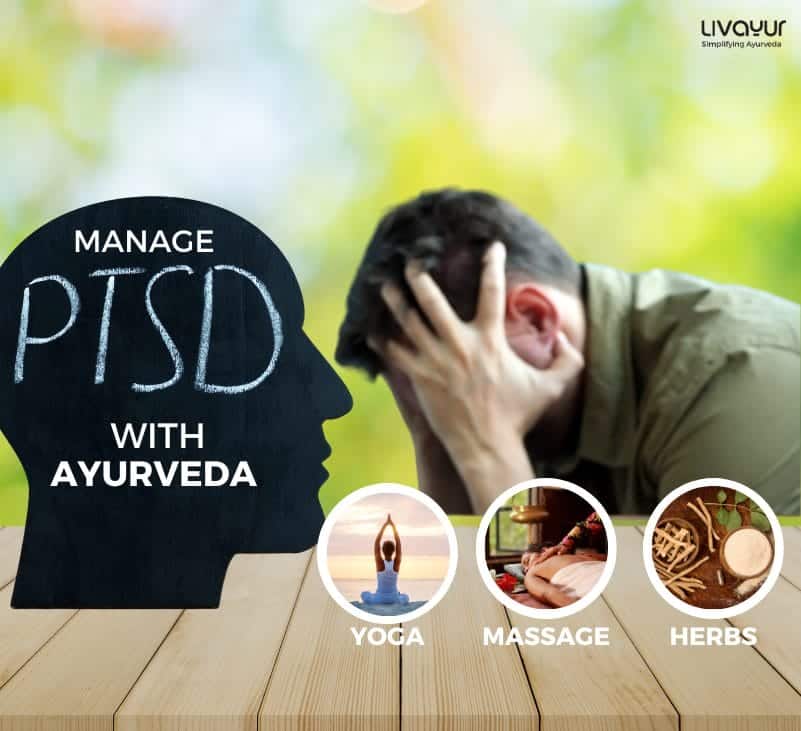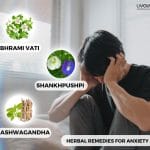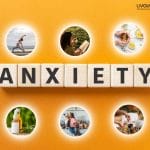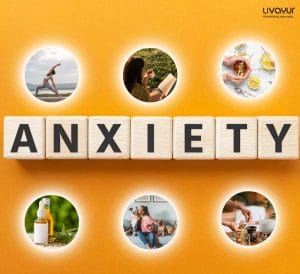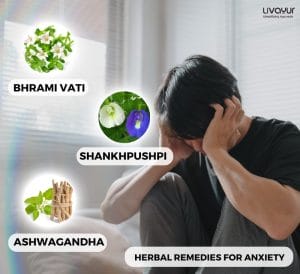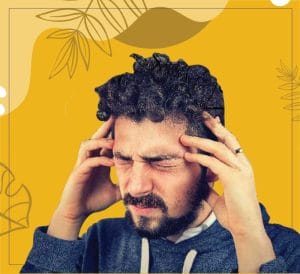This article is reviewed by an expert

Have you recently experienced a traumatic event, or have you been diagnosed with PTSD?
If yes, then you have come to the right place. Here is everything you need to know about post-traumatic stress disorder or PTSD.
What Is Post-traumatic Stress Disorder (1)?
Post-traumatic stress disorder, or PTSD, is a mental health disorder that can develop after experiencing or witnessing a traumatic event.
These traumatic events can range from life-threatening situations like combat, natural disasters, car accidents, or sexual assault to emotionally devastating events such as the unexpected loss of a loved one.
Causes of Post-traumatic Stress Disorder (1)
The causes of post-traumatic stress disorder (PTSD) remain largely unknown to researchers. However, it is assumed that factors like genetics, neurobiology and other personal factors, may contribute to why some people develop PTSD after experiencing a traumatic event while others do not.
Symptoms of Post-traumatic Stress Disorder (1)
The symptoms of post-traumatic stress disorder can be largely divided into four categories:
Re-experiencing Symptoms
- Flashbacks of the traumatic event
- Nightmares related to the traumatic experience
- Intrusive and distressing thoughts about the trauma
Avoidance Symptoms
- Avoiding people, places, or objects that remind you of the traumatic event
- Avoiding thoughts or feelings by keeping yourself busy
Arousal and Reactivity Symptoms
- Easily becoming startled or jumpy
- Feeling constantly on edge or vigilant for potential danger
- Difficulties falling asleep or staying asleep
- Experiencing intense anger or irritability
Cognition and Mood Symptoms
- Trouble remembering important details about the traumatic event
- Developing negative thoughts about oneself or the world
- Feeling guilty or responsible for the traumatic event
- Losing interest in previously enjoyed activities
- Having difficulty focusing or concentrating on tasks
It’s important to note that in some cases, the symptoms of PTSD may not appear immediately but manifest later. These symptoms may also fluctuate, appearing and disappearing over time.
Diagnosis of Post Traumatic Stress Disorder (1)
Diagnosing post-traumatic stress disorder (PTSD) involves a thorough evaluation conducted by a healthcare provider with expertise in mental health. It may also include a physical examination to rule out any physical causes for the symptoms.
Remember that to be considered PTSD, your symptoms must have lasted for at least a month.
Treatment of Post Traumatic Stress Disorder (2)
Treatment for post-traumatic stress disorder (PTSD) can vary depending on individual needs and preferences. However, here are some key treatment options for PTSD.
Psychotherapy
- Cognitive Behavioral Therapy (CBT): This approach focuses on changing negative emotions and beliefs related to the traumatic event. Cognitive processing therapy, prolonged exposure therapy and stress inoculation therapy are some specific types of CBT used to treat PTSD.
- Trauma-Focused Cognitive Behavioral Therapy: Designed for children and adolescents, this treatment incorporates trauma-sensitive interventions with cognitive-behavioural, family, and humanistic principles and techniques.
- Eye Movement Desensitization and Reprocessing (EMDR): A trauma-focused therapy where the therapist guides the patient through questions about the traumatic memory while using eye movements or other bilateral stimulation. This helps reprocess the memory in a less negative manner.
- Group Therapy: Aimed at providing a supportive and non-judgmental environment where survivors of similar traumatic events can share their experiences and emotions, group therapy helps promote mutual understanding and validation.
- Family Therapy: This therapy involves the whole family in the treatment process, addressing how PTSD symptoms affect family dynamics and offering support and education.
Medication
Apart from psychotherapy, your healthcare provider may also prescribe you medication to alleviate core symptoms of PTSD, such as depression, anxiety, emotional numbness, physical agitation, nightmares, and sleep disturbances.
Ayurvedic Treatment Of PTSD
Complementary and alternative therapies such as acupuncture, yoga and animal-assisted therapy are now well accepted as complimentary therapies that may be used alongside conventional treatments to address symptoms and promote well-being. However, there is growing interest in the use of Ayurveda for PTSD management. Some Ayurvedic approaches that have been investigated and offer clear benefits include the following.
Ayurvedic Herbs: A number of Ayurvedic herbs are known for their adaptogenic properties, providing relief from stress and anxiety. However, Ashwagandha is most noteworthy in the context of PTSD as it not only boosts mood, but has also been found to protect against PTSD induced memory impairment 3.
Meditation: Meditative practices such as transcendental meditation have been rigorously investigated and are widely used in moder psychology to treat stress and anxiety disorders, including PTSD. In fact, studies found that the practice benefited American Veterans who fought in Vietnam and had been suffering from PTSD, allowing them to resume normal lives 4.
Massage Therapy: All body massage therapies that are administered at Ayurvedic clinics also offer benefits in relieving PTSD symptoms. Research shows that the application of Muriveena and Kottamchukkadi tail in such therapy can provide relief within three days 5.
Yoga: Similar to the research on meditation, yoga programs have also been used to help military veterans cope with PTSD. Research published in the US journal Military Medicine found that a 6 week yoga intervention held twice a week significantly improved sleep quality and reduced PTSD hyperarousal symptoms. They recommend yoga as an effective adjunctive therapy 6.
How To Prevent Post Traumatic Stress Disorder (1)?

While it may not be possible to completely prevent post-traumatic stress disorder (PTSD), here are some tips you can use to prevent PTSD:
- Reach out to friends, family, or support groups to receive emotional support and connection during difficult times.
- Cultivate a positive outlook and find ways to feel good about your actions even in the face of danger.
- Learn effective coping mechanisms like meditation that can help you navigate challenging situations.
- Focus on maintaining your ability to act and respond effectively, even when experiencing fear.
On a Final Note
Post-traumatic stress disorder (PTSD) is a complex mental health disorder that can significantly impact the lives of people who have experienced or witnessed traumatic events. Understanding the causes, symptoms, and available treatments may help deal with PTSD better.
FAQs
- How can PTSD affect my life?
PTSD can have a significant impact on various aspects of your life. It can lead to issues such as alcohol and drug use, anxiety, depression, thoughts of self-harm or harm towards others, and difficulties in work and personal relationships.
- Are certain people more likely to develop PTSD than others?
While there is no way to predict who will develop PTSD after a traumatic event, certain factors increase the likelihood. PTSD is more common in people who have experienced military combat or sexual assault, as well as those who faced injury during an event.
Lack of support from loved ones, prolonged or repeated trauma, a personal history of anxiety or depression and highly intense trauma may also contribute to the development of PTSD.
- Can PTSD get worse over time if left untreated?
Yes, without treatment, PTSD symptoms can worsen over time. Therefore, it’s important to seek help and support to address the impact of the traumatic event and prevent the escalation of symptoms.
- Can treatment still be effective for PTSD even if the traumatic event happened many years ago?
Yes, treatment for PTSD can be beneficial regardless of when the traumatic event occurred. Seeking help from a mental health professional can provide strategies and support to manage symptoms and improve overall well-being.
Disclaimer: The information provided here is for general information and not meant to substitute any medical advice. Please consult your doctor for appropriate medical consultation.
References
- https://medlineplus.gov/posttraumaticstressdisorder.html
- https://www.psychiatry.org/patients-families/ptsd/what-is-ptsd
- https://link.springer.com/article/10.1007/s11033-019-04915-3
- https://www.hindawi.com/journals/ecam/2007/468038/
- http://japs.co.in/index.php/JAPS/article/view/92
- https://academic.oup.com/milmed/article/178/8/854/4259693?login=false
- https://www.ncbi.nlm.nih.gov/pmc/articles/PMC1810367/




